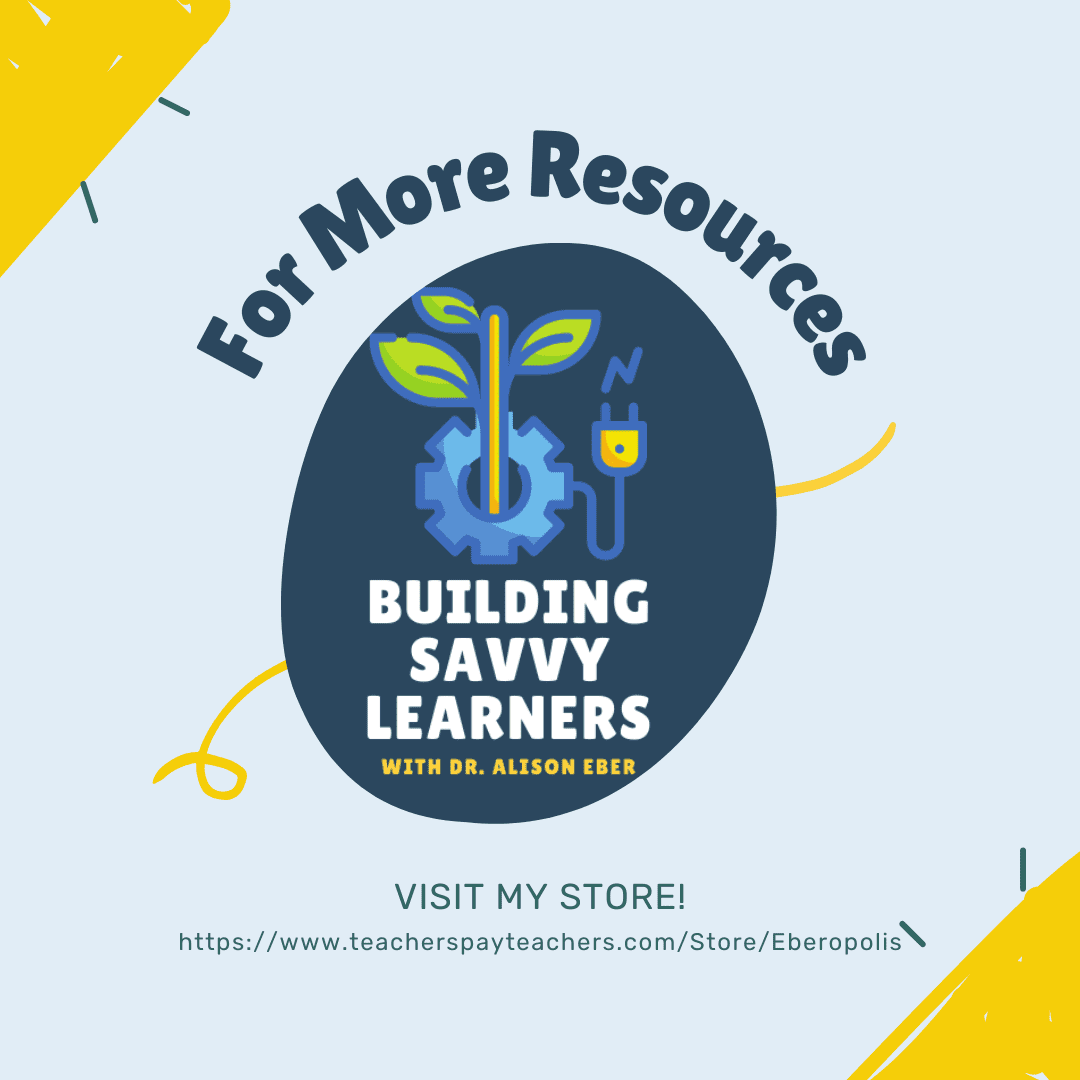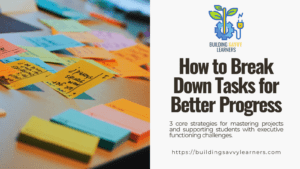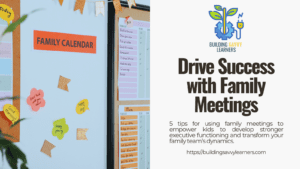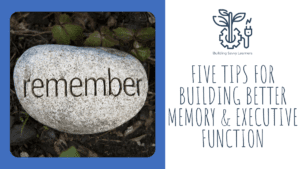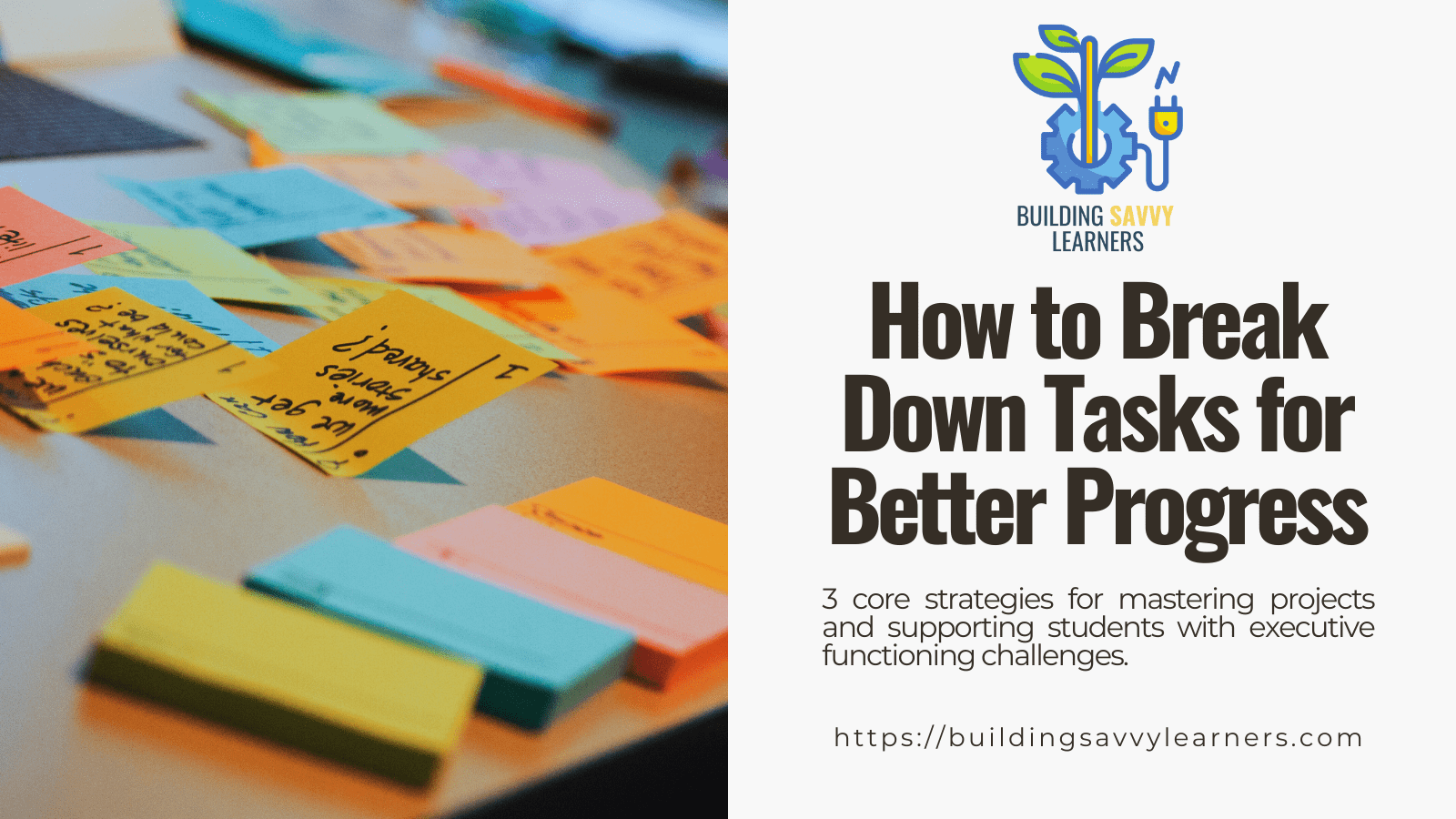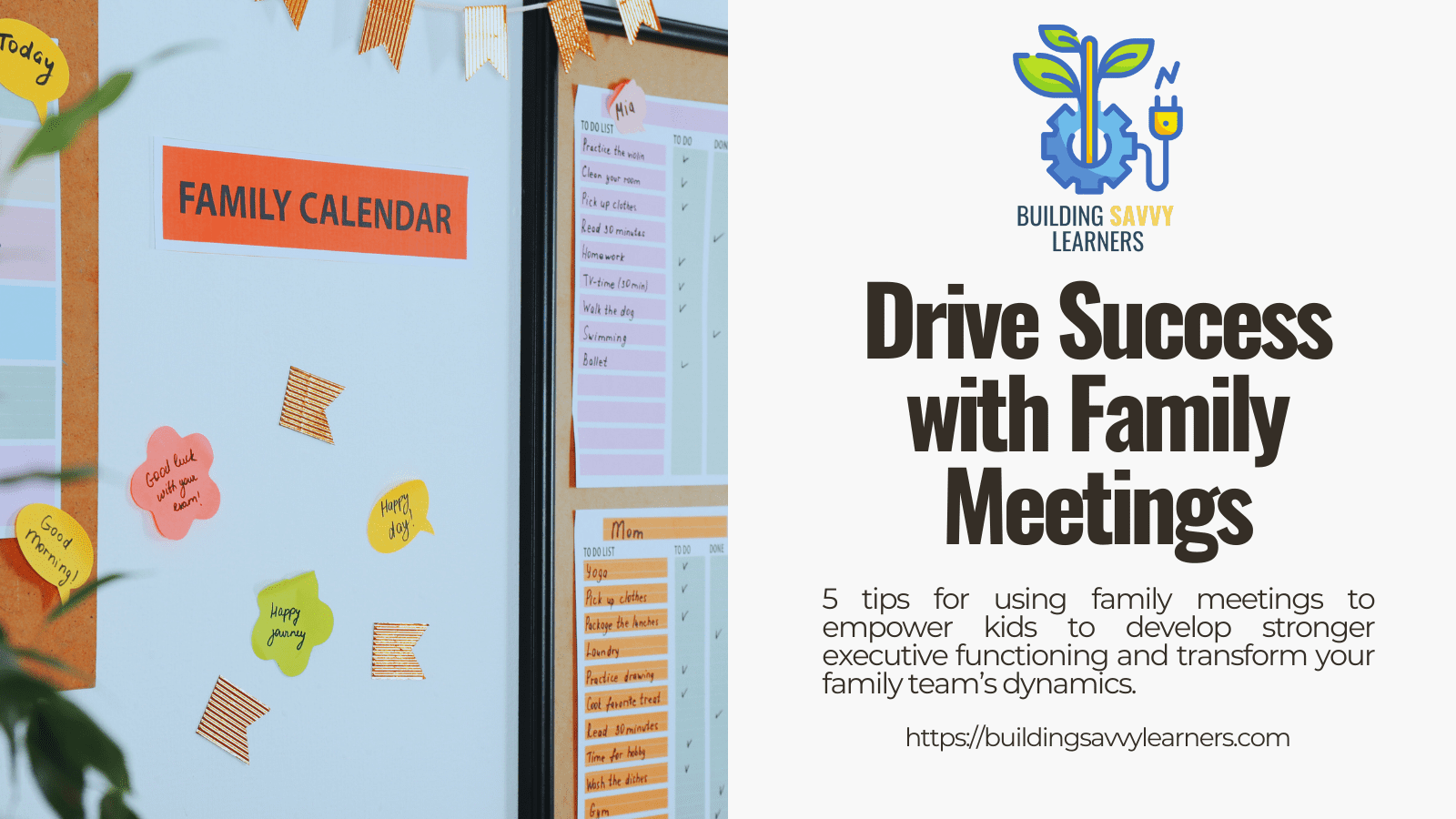(Note: This post contains affiliate links. As an Amazon associate, I earn from qualifying purchases. That means if you click on a link and make a purchase, I will get a small commission at no additional cost to you. To learn more about why I use affiliate links, you can read my disclosure policy. Thank you for supporting Building Savvy Learners.)
When teachers talk about reading comprehension, they’re talking about the complex patterns of thinking that go between decoding the words on the page to understanding the ideas they represent. Assessing how well this process is working can feel a little scary for teachers and parents alike. This is especially true once children move out of picture books and into lengthier chapter books.

As a teacher, I did my best to keep tabs on what my students were reading. But I was vastly outnumbered. Some years, I had nearly 30 students, so it was impossible for me to read everything they were picking up.
As a parent, it’s been no different. While I still read some books with my older daughter, there are plenty that she manages on her own. I only wish I had the time to read them all!

But even if I haven’t read the book, I can still gauge how well students are understanding a text. Today’s blog post will give a general explanation of why reading comprehension is so important. I’ll also provide some resources for parents and teachers to check reading comprehension even if you haven’t read the book.
Why Reading Comprehension Matters
Reading comprehension involves multiple facets of reading. To comprehend, students should be decoding a text, figuring out what it means, and integrating that meaning with their background knowledge. For example, imagine students are reading a text about seeing a silo on a farm. Students in a rural area may be thinking about the silos they’ve seen on farms. As a result, they might have a better mental image of the setting. They may have a better understanding of the text compared to kids who have never seen a farm.
Research tells us that students at all levels benefit from explicit instruction in comprehension strategies. These strategies include using word knowledge like the meanings of Greek and Latin roots. It also includes skills like finding organizational structures for texts, self-monitoring strategies, and so on.
When students are not comprehending what they read, they may miss key ideas. Some students were great at reading aloud but couldn’t answer questions about what they had read. Similarly, I saw students race through books like ambitious readers, but they were missing all sorts of details that could affect their interpretations of the text. In both of these cases, the students seemed like they were great readers, but their reading comprehension needed some help.

Using Conversations to Check Understanding
Conversations about a text are a great way to get a sense of how well students understand what they’re reading. In the classroom, I did this through quick 3-5 minute reading conferences with each student once or twice a week. With my own children, I purposefully initiate conversations about books.
To begin, I take a look at the back of the book or the book jacket to get a sense of the basic plot, characters, and genre of the book. A lot of times I can figure out likely themes from that information as well. Then I pick a reading comprehension question as a starting off point. It could be something like “What made you choose this book?” From there, I can look for further talking points around characters, setting, and plot.
But here’s the secret.
It’s not enough for me to ask a student to tell me about a character. I also need text dependent follow up questions to assess reading comprehension. For example, if a child describes a character as brave, I might ask: “How do you know she’s brave? Can you tell me about a moment in the story that really showed that characteristic?”

From there, I can usually gauge how well the reader is understanding the book by how well they’re able to elaborate. If they’re struggling, I’ll absolutely tell them to take their time or go back to find an example in the book. After all, it’s not a quiz, and even if it was, re-reading is an important skill for kids to develop. But I want young readers to be able to make a claim AND support it with evidence from the text. These conversations can be a great way to do that.
Download a Free Guide for Reading Conversations
To support these reading conversations, I recently wrote a free guide called 10 Questions You Can Ask to Check Reading Comprehension…when you haven’t read the book yourself. You can download your free copy on this page.
Additional Resources for Parents
It can be scary releasing kids to develop their own reading habits. And there are so many amazing children’s chapter books out there, I wish I could read them all. The landscape is more diverse in topics, characters, and authors than when we were kids–and that’s a great development for children’s literature. But, it can be hard to know what’s out there and what books are a great fit for your kid. Here are a couple resources that I love.
Common Sense Media
Common Sense Media has thousands of book reviews available. The reviews also provide visual guides to the topics and themes you’ll find in the book. Common Sense Media is a great resource to inform parenting decisions when it comes to media of all kinds.
Children’s Librarians and Bookshops
Anytime you encounter someone whose work centers on children’s books, you are in the presence of a tremendous resource! These people are often voracious readers. If you’re ever looking to learn about a particular book or gather suggestions of books your child might like to read next, then be sure to ask these people.
Additional Resources for Teachers
The Superpowers of Media Specialists
Just like the children’s librarians mentioned above, your school media specialist/librarian likely has a wealth of knowledge about books. Most also have access to trade journals like The Horn Book and School Library Journal. These journals feature extensive book reviews to help you get more information to ask more targeted reading comprehension questions.
First Reader Responsibility
I frequently used Scholastic Book Orders in my classroom, and I restocked our classroom library often as a result. But I never just added books onto the shelves to go unnoticed. Instead, I would share each book with my class by showing them the cover. I would read aloud the blurb on the back, and tell them anything I knew about the author or genre. I then offered it to the class to see if anyone wanted to be the first reader. In exchange for getting first dibs on the book, they’d write a brief summary and review once they finished. This helped me learn more about the book, and my students were excited to be the first reader.
Conferring Resources
It took lots of trial and error and experimenting to find routines that worked for me in launching reading conferences in my classroom. A few books were especially helpful in that process, though.
A Teacher’s Guide to Reading Conferences: The Classroom Essentials Series by Jennifer Serravallo
The Literacy Teacher’s Playbook, Grades 3-6: Four Steps for Turning Assessment Data into Goal-Directed Instruction by Jennifer Serravello
The Book Whisperer: Awakening the Inner Reader in Every Child by Donalyn Miller
Read the Research
Want to read more about the science of reading comprehension? This article is a great starting place:
Duke, N. K., Ward, A. E., & Pearson, P. D. (2021). The science of reading comprehension instruction. The Reading Teacher, 74(6), 663-672. doi: 10.1002/trtr.1993 Open access available at https://ila.onlinelibrary.wiley.com/doi/10.1002/trtr.1993
Literacy Focus throughout March
I’ll be blogging on Tuesdays and Fridays throughout the month, and the focus this month is on literacy. Be sure to pick up my free resource on checking reading comprehension, and leave me a comment:
What is a challenge you face as it relates to helping older readers and writers?



